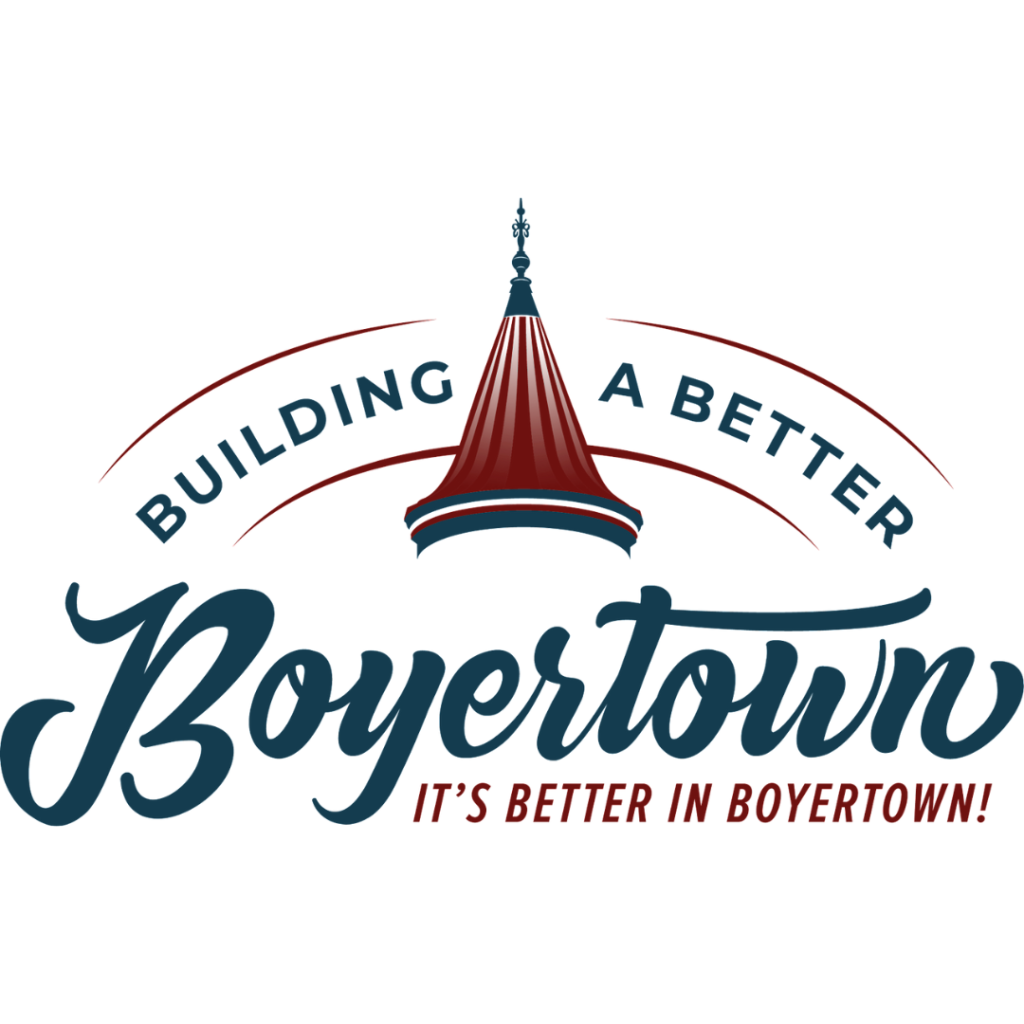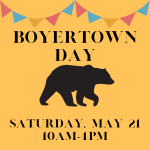Join us for our first Pokémon GO tournament and community vendor event on Sunday, Feb. 18, from 10 a.m. – 7 p.m., at the Boyertown Area YMCA, 301 Spring St., Boyertown. Whether you come to battle or just to watch, you do not want to miss this event. There will be food, local vendors, plenty of game playing, and possible meet and greets. This event is hosted by Building a Better Boyertown and Team Asylum.
For more information visit: https://www.buildingabetterboyertown.org/pokemongo.
Audiences can follow the Team Asylum tournament on Twitter or X.
The following is a story written by Jane Stahl and published in The Boyertown Area Expression digital news:
“Never in a million years,” the expression goes. I’ve ended that phrase recently with something like “did I ever think that playing video games all day would be a career in which you could earn big bucks—bucks “big enough to buy mansions.” This assertion comes from Randy Renninger and Jake McCoach, two Boyertown graduates who are organizing and promoting the upcoming Pokémon GO! tournament on Feb. 18, 2024, 10 a.m.-7 p.m., to be held at the Boyertown YMCA, 301 Spring St., to benefit Building a Better Boyertown.
Randy and Jake work as part of the North American e-sports organization, featuring teams, content, and events for Team Asylum in which players participate in Pokémon GO, a revolutionary mobile video game that got its start with characters created by Japanese electronics maker Nintendo and was hugely popular in 2014.
Pokémon GO can be downloaded to phones on Apple and Android operating systems. It uses each phone’s location finder and clock to detect where and when players are in the game. It then makes Pokémon characters “appear” on their screens in virtual places like parks and gyms. Players then locate, capture, tame, and train characters for tournament battles against competing teams. All on their phones.
“Back then, you’d see young people walking the streets, phones in hand, searching for Pokémons to add to their collections,” explains Randy. “The game gets people outside, walking around. Walking is a big part of the game; it’s how you get experience, how you catch Pokémons and collect items to help you win. In Boyertown, every Bear Fever bear in Boyertown is a poke-stop,” he adds.
“It’s a great game,” offers Randy. “Players work together with other players who ‘fight’ to see who wins. But it’s cute, not violent or bloody in any way; the game is very child friendly.”
Randy also advocates for Pokémon GO for the social aspect of the game. “Camaraderie is healthy for young minds,” he explains. “Being part of a Pokémon team allows some kids to be included. Not everyone can play football or baseball, but they can play on Team Asylum from their home; even with a disability, they can be part of a team.
“The accessibility and the inclusivity that the game allows are important for me. The stigma of the game exists that out-of-shape kids—or adults—are holed up in their basements all day. And yet, one of the benefits of the game is that anybody can play—no matter what shape they’re in—from a chair in their homes, on their phones—even without the use of their hands. And they can come from any walk of life. There’s more opportunity for more people to belong, to be part of a team,” he continues. “Belonging is important.”
And so, bringing a tournament to his hometown is important to Randy. Offering his own experience, he says, “The benefit is that players will come together and meet face-to-face. One of the downsides typically is that I know a lot of people online by their gamer names. We play as team members; I send them ‘gifts,’ as part of the game, but I don’t know them in real life. We could be sitting on the same park bench, playing Pokémon as team mates and not know it.”
Randy recalls what he calls “the old days. “One day at Green Lane Park, I was spinning a poke stop on a bench with a guy who was spinning too. We began a conversation; he shared his story about his brain surgery. We got to know each other; I miss that; today, those personal encounters are few and far between.”
“But the tournaments themselves are big deals for in-person meetings,” notes Randy. “While this is Boyertown’s first tournament and we don’t know how many players will come, tournaments like these often attract 150-200 players of all ages, locally and from other states.” The event is scheduled to include plenty of game playing, possible meet and greet sessions, local vendors, and a variety of food offerings.
“The tournament as a community event will allow folks to come in, battle, and get to know each other and perhaps become friends. That’s a big thing for me,” he notes.
“Our event in February is pulling people from out of state. Some players assigned to our team and the talent that narrates during the tournament are people who were part of the original game. Jake McCoach, who has worked in e-sports a long time, is on the camera, hitting switches, narrating the play. He attracts some big-name people to come to Boyertown. Players will compete for World Champion.
E-sports has come a long way. Students can get scholarships to college to play on e-sports teams. Players can make a living playing video games by earning prize money. “The payouts are huge,” Randy explains. “All colleges have e-sports teams just like physical sports teams. Players can live-stream online. People make really healthy livings playing games. They buy mansions off of e-sports money.”
Boyertown High School runs a few e-sports teams as a school club. The students compete online, and Randy watches streams of their play online. “It’s so cool to watch the next generation of players,” he shares. “Today’s 17-year-olds can beat me in any game. These kids are so good at video games.”
Randy, today at 26, admits that he wasn’t the best of students in high school. “Back then, he played lots of video games and focused mostly on his art classes and not much else. “I regret that today; I made it tough on myself, and so, I tell students today to pay attention in class and do their homework. But I worked hard in college—a small art school that no longer exists—and turned things around.” Today, he is proud of the designs he creates for Team Asylum’s merchandise and promotion. “I make them look good,” he says with pride.
Randy loves the grass roots, loves small towns. Working with players who stream a lot and connecting them with sponsors that will pay them to play is what he enjoys most. “While Team Asylum doesn’t have the funds to pay Pokémon players, I enjoy connecting our guys with a sponsor. I’ve connected with a lot of cool companies; friendships develop; and then, when I see a good match—player and company—there’s no bigger reward for me than seeing them develop a working relationship that benefits them both. Connections are key!”
Jake McCoach, a 2013 Boyertown graduate, was playing competitively since 2008 and notes how much things have changed. “Today there are huge prizes and college scholarships for individual players from companies that sell headsets or energy drinks or candies.”
His job is connecting sponsors for Team Asylum players and putting together larger community events. “If, for example, a company wants to put on a million-dollar tournament—with prize money of that amount—I work on events to get to that point. “And, yes, believe it; payers are playing for boatloads of cash.”
Jake started by finding a website where players around the world were playing against each other, forming teams. He started volunteering for tournaments, working in the industry. Eventually volunteers like himself started getting paid. Today, he looks to get involved and support school e-sports clubs, scouting talent and mentoring talented players.
He recalls one 14-year-old player whom he watched at free monthly online tournaments and was impressed with his abilities. Jake connected with the player’s dad and directed the player to big money events. Today, at 18-years-old, the player makes a salary as a professional gamer.
“This is what players do. They go, compete, act as representatives for games. Tournaments are broadcast on closed circuit TV—on cable networks like ESPN sometimes. Many players market themselves,” Jake explains. “They build and cross pollinate their own audience. Like an agent for a baseball player, I can sometimes connect them with sponsors, and they’re off!
And so, it looks like I was a little off in my prediction—“never in a million years”—turns out that today is the day that sharpening your skills by playing video games all day is a worthwhile, sometimes very profitable, way to make a living. Who knew?




